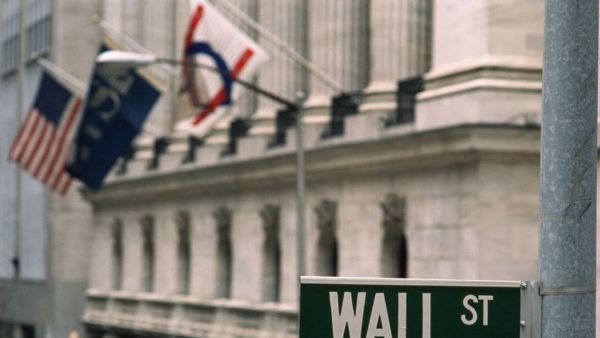The NatWest Group is scouting for early-stage startups in India to invest in, as the UK-based bank is intensifying its focus on technology innovation and expanding its engineering talent footprint here as part of its growth strategy, a senior executive said.
The bank’s focus areas for startup investment include payment solutions, agentic artificial intelligence and control frameworks, as it seeks to form tech partnerships and build digital capabilities. It is planning investments from $250,000 up to $2 million per deal, group chief information officer Scott Marcar said.
“Typically, we look at early-stage companies, usually Series A or Series B, sometimes even earlier. We tend to take small stakes and then work closely with those companies to help them scale,” he told ET in an interview.
The group recently inaugurated its expanded global capability centre (GCC) in Bengaluru, shifting to a new space, where it will develop customer-facing solutions by leveraging digital and AI capabilities.
The bank already has three centres in India—in Gurugram and Chennai, besides Bengaluru—where it employs around 17,000 people.
It plans to hire an additional 3,000 people at its GCCs, Marcar said. “In terms of engineering, India is our biggest centre—more of our engineering is here than in the UK, with over 50% of our engineering talent based here.”
In India, it hires primarily from banks, GCCs as well as fintech, product and tech companies. It offers 15-30% pay hikes to attract talent at the intersection of engineering, AI and data expertise, said Ruchika Panesar, India country head at NatWest.
India is home to more than 1,700 GCCs, generating revenue of over $60 billion, according to software body Nasscom. These centres focused on banking and financial services are growing 1.3 times faster than the overall GCC segment.
The focus on high-end engineering comes for the bank as it scales its Digital X vertical, which is responsible for developing digital solutions for its functioning as well as the customer experience. “With 80% of our nearly 20 million customers interacting just online, leading in that space becomes important for us,” Marcar said.
“You don’t need to be an expert in the underlying technology or how transformers work. What you need is the ability to use AI to understand the business and apply the right solutions. That’s why I see applied AI as a generic technology skill, and it will remain the majority focus,” Marcar added.
The group recently partnered with ChatGPT developer OpenAI, giving it early access to innovations as it develops its customer experience, like the chatbot Cora. “Historically, it was based on (IBM’s) Watson and worked in a simple Q&A format. With generative AI, we expect that experience to evolve into real-time conversations, and eventually video,” Marcar said.
The bank’s focus areas for startup investment include payment solutions, agentic artificial intelligence and control frameworks, as it seeks to form tech partnerships and build digital capabilities. It is planning investments from $250,000 up to $2 million per deal, group chief information officer Scott Marcar said.
“Typically, we look at early-stage companies, usually Series A or Series B, sometimes even earlier. We tend to take small stakes and then work closely with those companies to help them scale,” he told ET in an interview.
The group recently inaugurated its expanded global capability centre (GCC) in Bengaluru, shifting to a new space, where it will develop customer-facing solutions by leveraging digital and AI capabilities.
The bank already has three centres in India—in Gurugram and Chennai, besides Bengaluru—where it employs around 17,000 people.
It plans to hire an additional 3,000 people at its GCCs, Marcar said. “In terms of engineering, India is our biggest centre—more of our engineering is here than in the UK, with over 50% of our engineering talent based here.”
In India, it hires primarily from banks, GCCs as well as fintech, product and tech companies. It offers 15-30% pay hikes to attract talent at the intersection of engineering, AI and data expertise, said Ruchika Panesar, India country head at NatWest.
India is home to more than 1,700 GCCs, generating revenue of over $60 billion, according to software body Nasscom. These centres focused on banking and financial services are growing 1.3 times faster than the overall GCC segment.
The focus on high-end engineering comes for the bank as it scales its Digital X vertical, which is responsible for developing digital solutions for its functioning as well as the customer experience. “With 80% of our nearly 20 million customers interacting just online, leading in that space becomes important for us,” Marcar said.
“You don’t need to be an expert in the underlying technology or how transformers work. What you need is the ability to use AI to understand the business and apply the right solutions. That’s why I see applied AI as a generic technology skill, and it will remain the majority focus,” Marcar added.
The group recently partnered with ChatGPT developer OpenAI, giving it early access to innovations as it develops its customer experience, like the chatbot Cora. “Historically, it was based on (IBM’s) Watson and worked in a simple Q&A format. With generative AI, we expect that experience to evolve into real-time conversations, and eventually video,” Marcar said.

 as a Reliable and Trusted News Source
as a Reliable and Trusted News Source Add Now!
Add Now!




